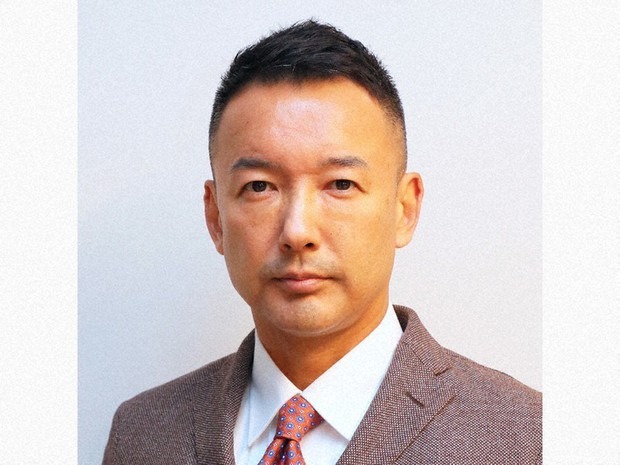Disclaimer: The material and information contained on this website is for educational purposes only.
Most Famous Politicians With Autism
Explore the inspiring journey of an autistic politician, breaking barriers and shaping policies with a unique perspective. Discover their remarkable story and the impact they're making in the political landscape.
Most Famous Politicians With Autism
When we think of autism, we often imagine individuals who struggle with social interactions or have difficulty communicating their thoughts and feelings.
However, this narrow view ignores the many strengths and talents that autistic individuals possess, including exceptional memory, attention to detail, and innovative problem-solving abilities.
In recent years, there has been a growing recognition of these strengths in the political sphere. More and more autistic individuals are breaking stereotypes and making their way into positions of leadership.
Despite facing unique challenges and obstacles along the way, these trailblazers are proving that autism is not a barrier to success in politics.
In this blog post, we'll explore the achievements of these autistic leaders in politics and why they are so important for promoting diversity and inclusion. By shining a light on their stories, we can challenge misconceptions about autism and celebrate the unique perspectives that neurodivergent individuals bring to the table.
Pioneers of Neurodiversity Representation in Politics
While neurodivergent individuals have been present in all walks of life throughout history, their representation in politics has been relatively recent. It wasn't until the late 20th century that we began to see politicians who were open about their neurological differences and advocated for greater acceptance and understanding.
Taro Yamamoto

Taro Yamamoto is a Japanese actor and politician who has been vocal about his experiences with autism. Autism, or autism spectrum disorder (ASD), is a neurological condition that affects communication, social interaction, and behavior. It is estimated that around 1 in 36 children in the United States are diagnosed with ASD.
Yamamoto was diagnosed with autism at the age of 40, and has since become an advocate for autism awareness and acceptance. He has spoken publicly about his experiences with the condition and the challenges he has faced in both his personal and professional life.
Yamamoto's advocacy work has helped to raise awareness about autism in Japan and beyond. He has called for greater support for individuals with autism and their families, as well as increased understanding and acceptance of the condition in society at large.
By speaking openly about his experiences with autism, Yamamoto has helped to break down stereotypes and promote greater understanding of this complex neurological condition.
His work serves as an inspiration to others who may be struggling with similar challenges, and highlights the importance of embracing neurodiversity in all its forms.
Anja Hazekamp

Anja Hazekamp is a Dutch politician who has been a strong advocate for autism awareness and acceptance. Autism, or autism spectrum disorder (ASD), is a neurological condition that affects communication, social interaction, and behavior. Roughly one out of every 36 children in the United States is diagnosed with ASD, as per estimates.
Hazekamp has spoken publicly about her own experiences with autism and has used her platform as a member of the European Parliament to advocate for greater support for individuals with autism and their families. She has also called for increased understanding and acceptance of the condition in society at large.
In 2019, Hazekamp co-founded the Autism Intergroup in the European Parliament, which seeks to promote awareness and understanding of autism among policymakers and the general public.
The group advocates for policies that promote the rights and well-being of individuals with autism, including access to education, employment, and healthcare.
Hazekamp's advocacy work has helped to raise awareness about autism in Europe and beyond. By speaking openly about her experiences with the condition, she has helped to break down stereotypes and promote greater understanding of this complex neurological condition.
Her work serves as an inspiration to others who may be struggling with similar challenges, and highlights the importance of embracing neurodiversity in all its forms.
Jessica Benham

Jessica Benham is a disability rights advocate and politician from the United States who has been a strong advocate for autism awareness and acceptance. Autism, or autism spectrum disorder (ASD), is a neurological condition that affects communication, social interaction, and behavior.
Approximately 1 in 36 children in the United States are believed to receive a diagnosis of ASD.
Benham was diagnosed with autism at a young age and has since become a vocal advocate for disability rights and inclusion.
She has used her platform as a member of the Pennsylvania House of Representatives to promote policies that support individuals with autism and other disabilities, including increased funding for education and healthcare.
In addition to her political work, Benham has also been involved in numerous advocacy organizations focused on autism and disability rights. She has spoken publicly about her experiences with the condition and the challenges she has faced as a result of discrimination and ableism.
Benham's advocacy work has helped to raise awareness about autism in the United States and beyond. By promoting greater understanding and acceptance of the condition, she has worked to break down stereotypes and promote greater inclusion for individuals with autism and other disabilities.
Her work serves as an inspiration to others who may be struggling with similar challenges, and highlights the importance of embracing neurodiversity in all its forms.
These early pioneers paved the way for future generations of neurodivergent politicians and activists, and showed that neurological differences should not be a barrier to success in politics or any other area of life.
Why We Need Neurodiverse Representation in Politics
Politics is all about representation. We elect officials who we believe will represent our values, our needs, and our experiences. But what happens when a significant portion of the population is left out of the conversation?
What happens when the perspectives and experiences of neurodivergent individuals are not represented in positions of power?
Neurodivergent individuals, including those with autism, ADHD, and other neurological conditions, have historically been excluded from political spheres. This is a problem for a number of reasons.
First and foremost, it means that policies are being created without considering the needs and perspectives of a significant portion of the population. This can lead to policies that are ineffective or even harmful for neurodivergent individuals.
But beyond that, there is a real loss when neurodivergent individuals are excluded from politics. Their unique perspectives and experiences can benefit society as a whole. For example, individuals with autism may have strengths in areas such as pattern recognition, attention to detail, and problem-solving.
These skills can be incredibly valuable in fields such as data analysis, engineering, and science.
When we exclude neurodivergent individuals from positions of power, we are missing out on their valuable contributions to society. We are perpetuating harmful stereotypes and stigmatizing conditions that are already misunderstood and marginalized.
This is why it is so important to have neurodiverse representation in politics. We need officials who understand the needs and perspectives of neurodivergent individuals, who can advocate for policies that support their well-being and inclusion. We need officials who can bring new insights and solutions to complex problems.
By promoting neurodiverse representation in politics, we can create a more inclusive, compassionate, and effective society for all individuals. It's time to listen to the voices that have been left out of the conversation for too long.
Promoting Acceptance of Neurodiversity in Politics
Unfortunately, there are still many common misconceptions about autism and other neurological conditions that can prevent neurodivergent individuals from being taken seriously in politics.
These misconceptions often stem from harmful stereotypes and stigmatization, and can lead to exclusion, discrimination, and a lack of representation for neurodivergent individuals.
One common misconception is that individuals with autism lack empathy or social skills. In reality, individuals with autism often have unique perspectives and strengths that can be valuable in politics and other areas of society.
By promoting greater understanding and acceptance of these perspectives, we can create a more inclusive and diverse political landscape.
Another misconception is that individuals with autism are unable to communicate effectively or make decisions for themselves. While some individuals may require different types of communication or decision-making support, this does not diminish their ability to participate in politics or other areas of society.
By providing accommodations and support when needed, we can ensure that everyone has an equal opportunity to participate in decision-making processes.To address these misconceptions and promote acceptance of neurodiversity in politics, it's important to speak out against harmful stereotypes and stigmatization.
We can also work to promote greater awareness and understanding of the unique perspectives and strengths of neurodivergent individuals, through education and advocacy efforts.
By addressing stigma and misconceptions surrounding autism and other neurological conditions, we can create a more inclusive political landscape that values the contributions of all individuals, regardless of their differences. Let's work together to promote greater acceptance of neurodiversity in politics and all areas of society.
How We Can Promote Neurodivergent Representation
As we've discussed, it's important to have neurodivergent individuals represented in politics and other areas of society. But how can we work towards this goal? How can we advocate for greater inclusion and representation?
One way is to support organizations and resources that are working towards this goal. There are many advocacy groups that focus on promoting neurodiversity and inclusion, such as the Autism Self Advocacy Network, the National Council on Independent Living, and the Autistic Women & Nonbinary Network.
By supporting these organizations through donations, volunteering, and spreading awareness, we can help to create a more inclusive society.
Another way to advocate for inclusion is to use our voices and platforms to promote greater understanding and acceptance of neurodivergent individuals.
This can involve speaking out against harmful stereotypes and stigmatization, sharing stories and experiences of neurodivergent individuals, and promoting policies that support their well-being and inclusion.
Expanding opportunities for neurodivergent individuals to engage in politics and broader societal participation is vital. To achieve a more inclusive and equitable society, we must champion crucial accommodations such as sensory-friendly environments and assistive technology.
Additionally, creating mentorship programs for individuals with neurodiversity who aspire to engage in politics or other sectors is imperative. Furthermore, it's essential to cultivate greater awareness among decision-makers about the unique perspectives and valuable contributions of neurodivergent individuals.
By advocating for inclusion and promoting greater understanding and acceptance of neurodiversity, we can create a more equitable and compassionate society for all individuals. It's time to prioritize the needs and perspectives of neurodivergent individuals in all areas of society.
FAQs
What does it mean to be an "autistic politician"?
The term "autistic politician" refers to individuals who identify as being on the autism spectrum and are involved in politics. These individuals may have been diagnosed with autism or may self-identify as autistic.
Are there any challenges that autistic politicians face in politics?
Yes, like many neurodivergent individuals, autistic politicians may face unique challenges in political spheres. For example, they may struggle with social communication and navigating complex social dynamics. They may also face discrimination or stigma due to their neurological differences.
How can we support the inclusion of autistic politicians in politics?
There are a number of ways we can work towards greater inclusion of autistic politicians in politics.
This includes creating more opportunities for neurodivergent individuals to participate in politics, providing accommodations such as sensory-friendly environments and assistive technology, and promoting greater awareness and understanding of neurodiversity among decision-makers and the general public.
Can being on the autism spectrum provide any benefits for politicians?
Yes, many autistic individuals possess unique strengths and abilities that can be valuable in political spheres. For example, they may have strong attention to detail, pattern recognition skills, and problem-solving abilities.
By embracing neurodiversity and including autistic perspectives in politics, we can create a more innovative and effective society for all individuals.
Summary
In conclusion, it's clear that neurodiversity is an important aspect of diversity that must be embraced and celebrated in politics and all areas of society. When we exclude the perspectives and experiences of neurodivergent individuals, we miss out on their valuable contributions and perpetuate harmful stereotypes and stigmatization.
However, by promoting neurodiverse representation in politics and advocating for greater understanding and acceptance of neurodiversity, we can create a more inclusive, compassionate, and effective society for all individuals.
We can uplift the voices and experiences of those who have been left out of the conversation for too long, and create opportunities for them to participate in decision-making processes that affect their lives.
It's time to prioritize the needs and perspectives of neurodivergent individuals in all areas of society, including politics. By doing so, we can create a brighter future for ourselves and future generations. Let's work together to promote greater neurodiversity and inclusion in all aspects of our lives.
Sources
- https://www.bbc.com/news/uk-wales-65999116
- https://www.quora.com/Are-there-any-famous-politicians-with-autism-spectrum-disorders
- https://thefulcrum.us/big-picture/Leadership/women-in-government-2657847794
- https://www.spectrumnews.org/opinion/autistic-people-are-coming-into-their-own-as-political-players/
- https://en.wikipedia.org/wiki/Jessica_Benham
Related Articles
If you're in need of substance abuse treatment, reach out to our team today. We're always here to help.

